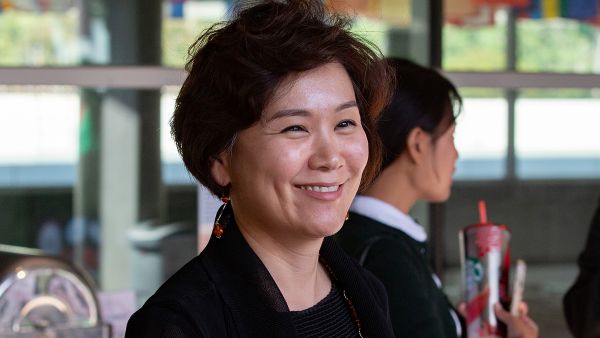South Korea’s college entrance exam is so high stakes that airplanes are prohibited from taking off or landing during one critical part of the exam to ensure test takers face as few distractions as possible.
“It is an intense, eight-hour exam that can shape the entire course of a test taker’s future,” said CSU Channel Islands (CSUCI) Professor of Psychology HyeSun Lee. “It is considered high-stakes because your score largely determines which university you can attend, an outcome that can influence your career, social standing, and opportunities in life. The pressure is overwhelming, especially knowing that if you don’t do well, you have to wait a full year to try again.”
The pressure students feel during this kind of test-taking in her native South Korea
is what inspired Lee to research testing in terms of its fairness and validity among
a diverse group of students. Besides taking the test herself, she watched her students
struggle with the stress of the exam during her seven and a half years as a high school
English teacher in South Korea.
The daughter of an electrical engineer and a stay-at-home mom, Lee became the first in her family to pursue an education in the United States. After Lee earned a Bachelor of Arts in Psychology and English Education from Ewha Womans University in Seoul, South Korea, she worked for about ten years before relocating to the U.S. to pursue a Master of Arts (MA) in Teaching English to Speakers of Other Languages.
Lee studied under Michigan State University applied linguist and professor Paula Winke, an expert in second language testing. Following the MA, Lee attended the University of Nebraska–Lincoln (UNL), where she completed a PhD in Quantitative, Qualitative, and Psychometric Methods under Meierhenry Distinguished Professor Kurt F. Geisinger, who is known for his work on validity and fairness, especially with diverse populations.
“I was very frustrated by the college entrance exams,” Lee said. “I became passionate about finding ways to examine the validity and fairness of high-stakes tests. My advisor at UNL specialized in test fairness, and the research alignment was clear. That was exactly what I wanted to study, and it was a key reason I chose the UNL program over the others I was accepted to”
When she joined the CSUCI faculty in 2016, she put her expertise into teaching courses in quantitative methods and test fairness and has been involved in the campus climate survey since 2022. In addition, Lee launched a unique “Undergraduate Research” class—UNIV 490 Special Topics—which is designed to familiarize students with how to conduct research. With a $150,000 grant from the University of California Chancellor’s Office, Lee designed the undergraduate research course to cover various disciplines.
“The class helps expose students to undergraduate research as soon as possible since students sometimes do not know much about conducting research,” Lee said. “Students learn how research is conducted in their fields, acquire foundational skills such as academic writing, and build relationships with faculty as they navigate their disciplines. This preparation helps students hit the ground running, enabling them to begin conducting research immediately upon completing the course.”
With a team of 15 faculty and staff, Lee developed an introduction to undergraduate research that can fit various disciplines, including applied physics, chemistry, environmental science and resource management, health science, library science, music, psychology, and sociology.
Spring of 2025 marked the first group of students to take the course, and another pilot run is planned for Fall 2025. Currently, Lee and the faculty who helped create the program are promoting the course to freshmen, sophomores, and newly transferred students to encourage enrollment.
Another of Lee’s accomplishments during her nearly 10 years on campus was to start the Asian/ Asian American and Pacific Islander Association (AAPIA) at CSUCI.
“We started it during the pandemic when there were a lot of hate crimes against the AAPI community at the time,” Lee said. “We started it in 2021 and now we host a lot of events and have expanded our membership to students. I was the inaugural faculty co-chair.”
Her dedication and expertise clearly resonate with her students. Some comments from her students about her teaching include:
“Dr. Lee’s class has been my favorite class by far. She truly cares about her students and wants them to succeed. She will push you further than you thought was possible.”
“Dr. Lee’s class was one of the best classes that I took at CI. She is super knowledgeable and passionate about the topic.”
And…
“I have to say no other professor at CI has taught me more than Dr. Lee. She teaches you everything you need to succeed. I’m so grateful that this course is offered here.”
